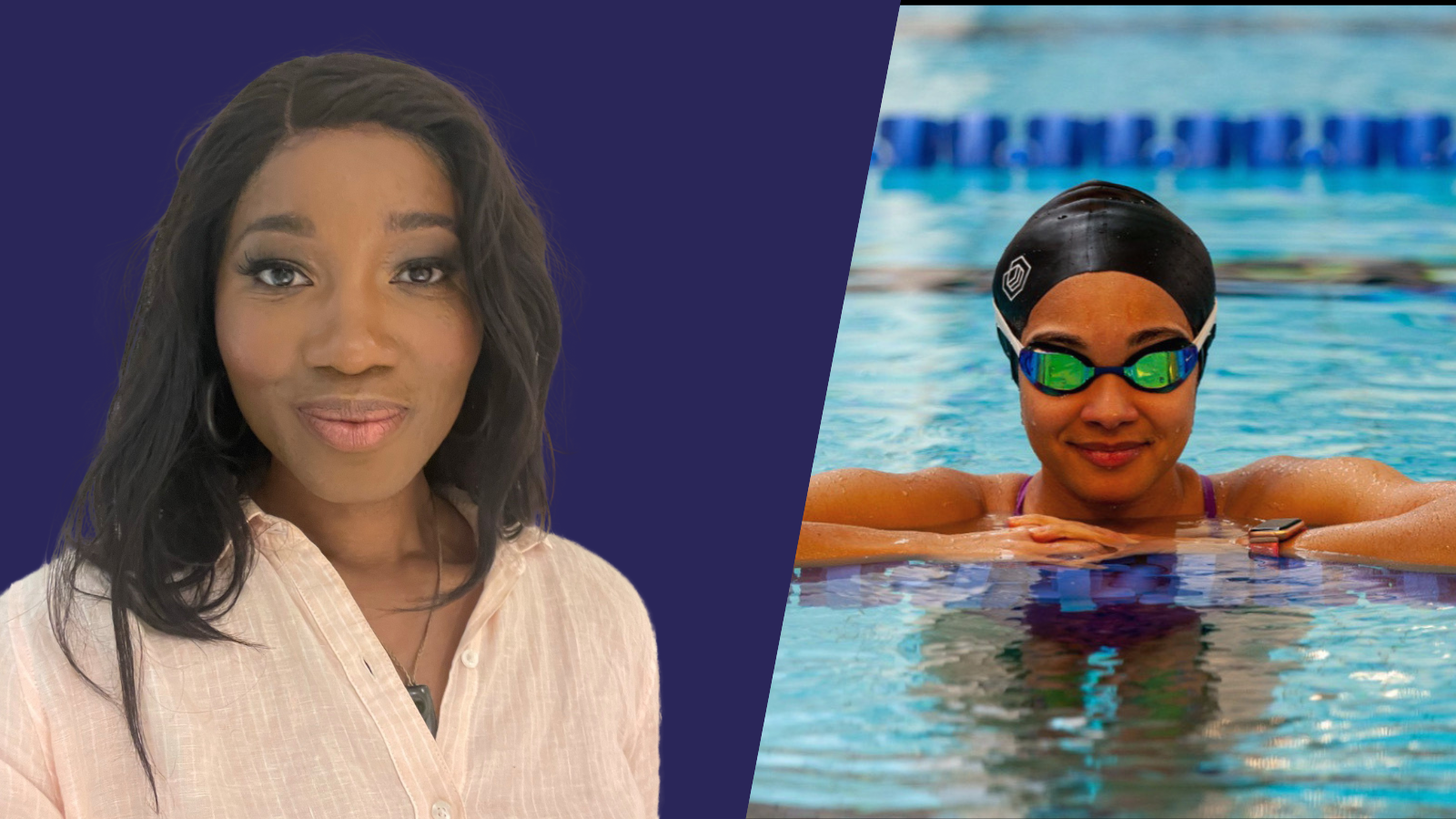Black History Month: Alice Dearing in conversation with Ama Agbeze

Alice Dearing made history at Tokyo 2020 as the first Black female swimmer to represent Team GB. While competing, Alice co-founded the Black Swimming Association, a non-profit organisation set up to diversify aquatics through education, advocacy, support and research. Her work outside the water has seen her receive the Sunday Times’ Sportswomen of the Year Changemaker award and a Sports Journalists’ Association award in 2022, as well as inclusion on the 2023 BBC Radio 4 Woman’s Hour Power List.
Alice sat down with Ama Agbeze MBE, Chair of UKAD’s Athlete Commission and former England Netball Captain, to discuss this year’s Black History Month theme ‘reclaiming narratives'. We were honoured to welcome Alice and Ama to UKAD’s offices to share this interview with colleagues. Here is a snippet of what they discussed...
Ama: The theme this year ‘reclaiming narratives’ is about sharing stories and showcasing Black heritage. And I just wondered if you could tell us a little bit about your own heritage?
Alice: I think a lot of us are worried or scared about how to ask someone about themselves and their history. For myself, I am mixed race. My mum's from Ghana and my dad is from Hull. They met as pen pals. Then he flew out to see her and they ended up getting married.
I'm really proud of who I am and my background. My mum was the one who brought me up so I am just like her in the way she looks at life and things. I'm just really grateful that I have been able to have two cultures to call my own.
What does ‘reclaiming narratives’ mean to you Alice?
To me it means encouraging anybody to get into something that they're interested in, regardless of who might have done it in the past, regardless of what the current face of it looks like.
For myself, I've been in swimming my whole life. As everyone knows with sport, you start very young. I didn't see many Black people at the top, but whenever I did see a Black person, I always wanted to remember their name and watched out for them. Alia Atkinson and Ariana Vanderpool-Wallace are just some of the swimmers that I remember as a child.
I never really thought that I was the odd one out, if that makes sense. But whenever I did see a Black swimmer stood behind the blocks at competitions, I would then notice them and then it would be like holding up a mirror to myself and being like ‘oh, I look like that’.
On a whole, it has been a really positive experience and changing this narrative is about showing people that Black people can swim as it’s a common misconception and stereotype that Black people are not able to swim or float.
Let’s explore the multicultural aspect you touched on and the stereotyping, how has that affected your life growing up in sport?
I've had a very sheltered upbringing in that way. I haven't been placed in an area where I've been like ‘I’m the only one’. There were always other families of colour at the clubs I was in. It was just when we went to open meets, it would get kind of diluted down and my mum would be the only Black person in the audience. But then I didn't notice that. And I'm happy I didn’t because a child shouldn't have to think about that at all. And even if that is the case, it shouldn’t matter.
The thing is with swimming and water, everyone's got their own story. It's a very personal thing. Especially from Black communities where it's not really spoken about much or swimming is kind of put to one side. We are often fighting generational stereotypes.
When they see me and they see other people like myself trying to encourage them to swim, I think it's a little bit of a shock, but in a good way. My community has embraced and uplifted me. They recognise that needing to know basic water safety and not knowing how to swim, is an issue.
You're the first Black woman to represent Team GB in swimming at an Olympic Games. I just wondered if you could share the reaction from people of your own heritage who were watching you, and saw you doing something that they don’t necessarily do?
Pretty much everyone I came across was like ‘wow, that's amazing’. I think I had like one or two messages at one point when I did an interview on CNN, and they didn't like the fact that I did an interview with CNN. They were like, ‘stay in your lane’ and ‘why are you trying to get people into swimming' and stuff like this. And I was just like, I feel like I'm trying to save people's lives here [on water safety], so I don't really mind what you think.
But generally it's all been positive.
Thank you for sharing and being so open Alice.
Notes:
Alice retired from open water swimming in April 2024 but continues to support elite athletes through her ambassador role for the British Elite Athletes Association. For more information on the support available to athletes at UKAD, visit ukad.org.uk.
